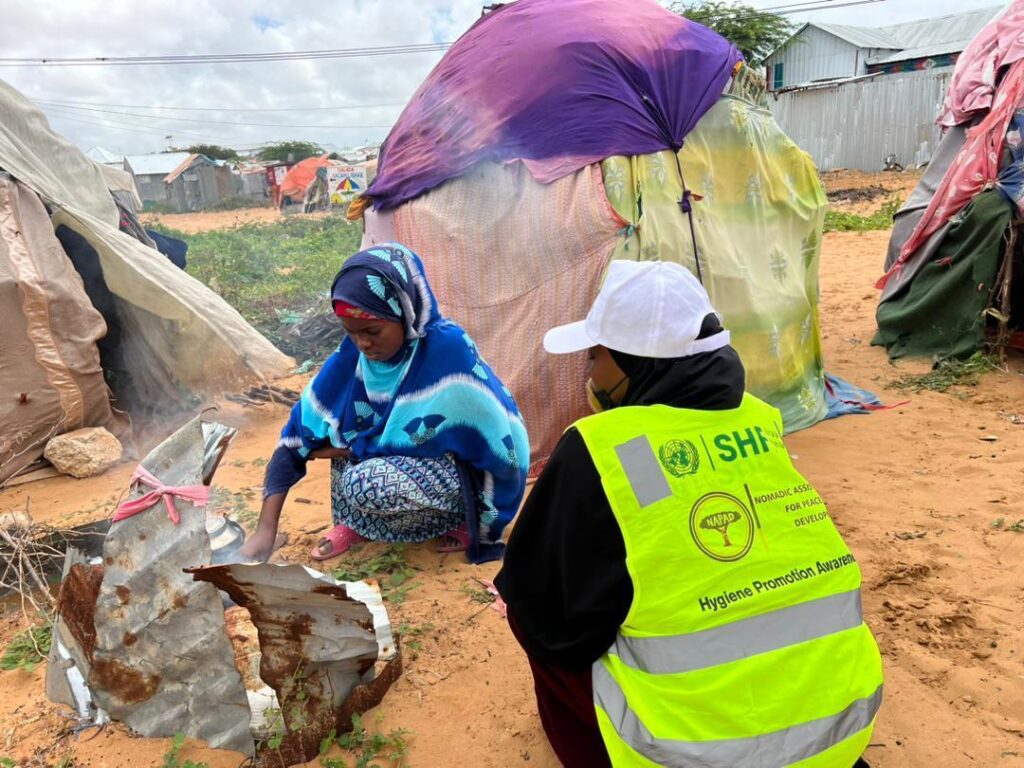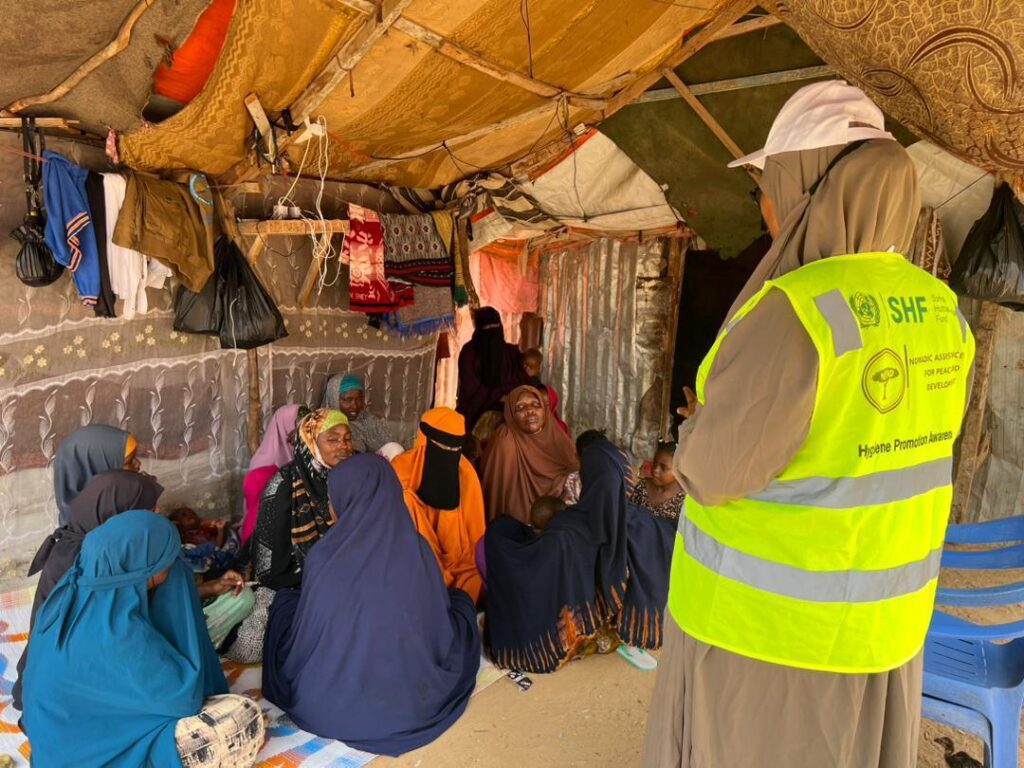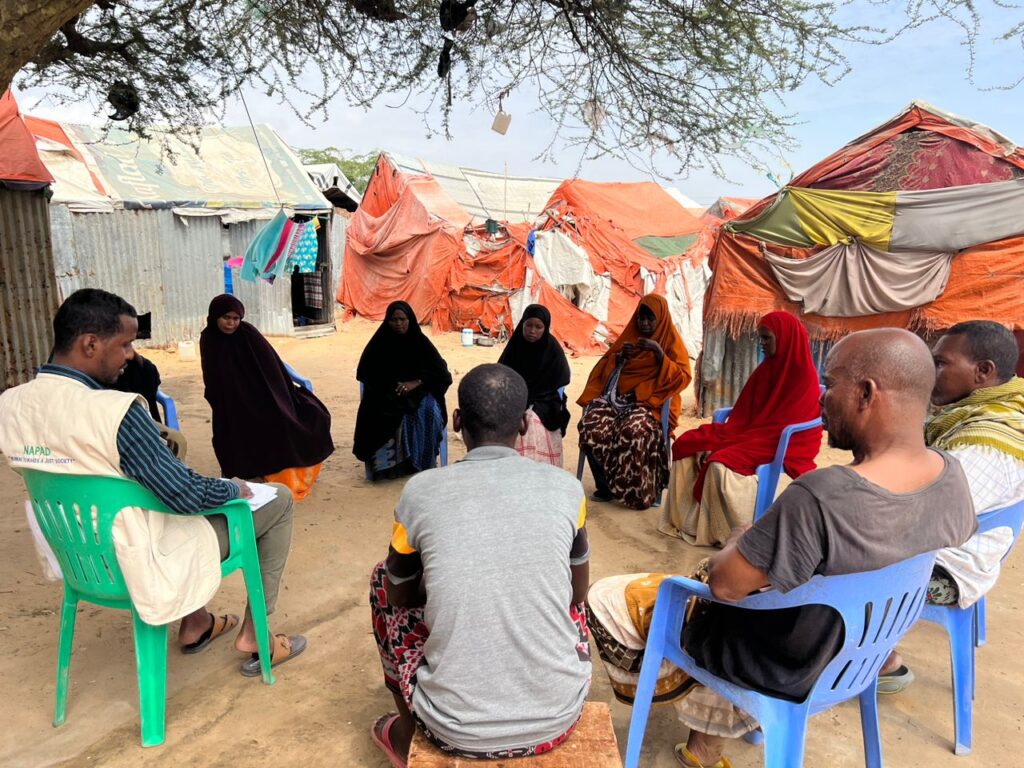Water, Sanitation, and Hygiene (WASH) communication campaigns are important in promoting good hygiene practices and reducing the spread of waterborne diseases. Their impact stems from the use of effective communication strategies to encourage social and behaviour change and improve public health outcomes. By addressing challenges such as open defecation and unsafe water practices, these campaigns bring about transformative health improvements in vulnerable communities.

In Deynille district, Nomadic Assistance for Peace and Development (NAPAD) with funding from Somalia Humanitarian Fund (SHF) launched a hygiene promotion campaign targeting 10 internally displaced persons (IDP) communities. Trained community hygiene promoters reached 5,166 community members across 861 households in the IDP camps. The campaign emphasized the importance of using latrines, adopting proper sanitation practices, and implementing safe water collection and storage methods. It also educated participants on critical hygiene practices, such as handwashing at critical times, ensuring improved health and sanitation among vulnerable populations towards adoption of the hygiene practices.
Nurto Ibrahim, who lives in Bula Warbo IDP camp, is one of the participants in this campaign. She shared that before the intervention, maintaining proper hygiene was a significant challenge in their community. Although they recognized the importance of hygiene and sanitation, the lack of clean water and essential resources like soap and clean jerrycans for safe water storage made it difficult to practice.

The hygiene education awareness campaign has led to noticeable improvements among the household’s sanitation. “My children no longer suffer from diarrhea, and they are much happier.” Nurto shared. Nurto also reported that she now ensures her family uses clean water for drinking, cooking, and other household needs. These changes have been easier to implement because the hygiene promoters not only educated the community on good hygiene and sanitation practices but also demonstrated how to integrate them into their daily lives.
Mohamed also highlighted the campaign’s impact on his family and the broader community sharing that, “We now understand the value of keeping our water clean. While some community members still face hygiene-related illnesses, many of us feel empowered to take charge of our hygiene, sanitation and health. These awareness sessions have also initiated discussions about sanitation, encouraging us to work together as a community towards better hygiene practices. The community is also increasingly aware of how small changes can lead to significant health improvements especially for our children.”

Both Nurto and Mohamed represent the households whose families have experienced positive social and behaviour change through the campaign. By addressing gaps in knowledge and practice, the initiative has not only reduced cases of waterborne diseases but also empowered communities with essential skills and created a stronger sense of responsibility towards communal hygiene and sanitation promotion.
